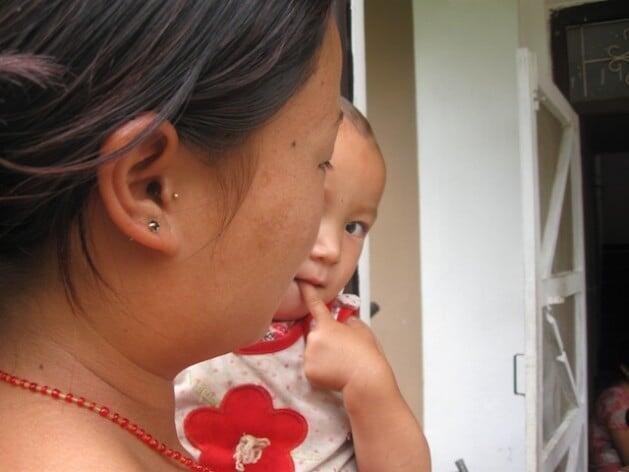Radhika Thapa was just 16 years old when she married a 21-year-old man three years ago. Now, she is expecting a baby and is well into the last months of her pregnancy. This is not the first time she has been with child. Her first two pregnancies ended in miscarriages.
“The first time I conceived I was just 16, I didn’t know much about having babies, nobody told me what to do,” Thapa says, while assisting customers at the vegetable store she runs with her husband in the small town of Champi, some 12 kilometres from Nepal’s capital, Kathmandu. “The second time I wasn’t ready either, but my husband wanted a baby so I gave in,” she admitted. After the second miscarriage, Thapa’s doctors urged her to wait a few years before trying again, but she was under immense pressure from her in-laws, who threatened to “find another woman for her husband if she kept losing her babies.”
According to the 2011 Nepal Demographic and Health Survey, 17 per cent of married adolescent girls between ages 15 and 19 are either pregnant or are mothers already. The survey also shows that 86 per cent of married adolescents do not use any form of contraception, meaning that few girls are able to space their births.
“You are talking about a child giving birth to another child,” says Giulia Vallese, Nepal’s representative for the United Nations Population Fund (UNFPA).
“When girls get pregnant their education stops, which means a lack of employment opportunities and poverty,” says Bhogedra Raj Dotel of the Government’s family planning and adolescent sexual reproductive health division.
Menuka Bista, 35, is a local female community health volunteer in Champi, assisting about 55 households in her area. Bista has been advising Thapa, to ensure that the girl has a safe pregnancy. “Radhika…knows she needs to go to the doctor and eat nutritious food for her baby to be safe, but she doesn’t make decisions about her body: her husband and in-laws do,” Bista said.
This observation is echoed in research carried out by various experts: according to Dotel, husbands and in-laws make all the major decisions about a woman’s reproductive health, from what hospital she visits to where she will deliver her child. For this reason, Vallese believes it is important to train husbands and family members on reproductive health and rights.
—Malika Aryal, Inter Press Service


